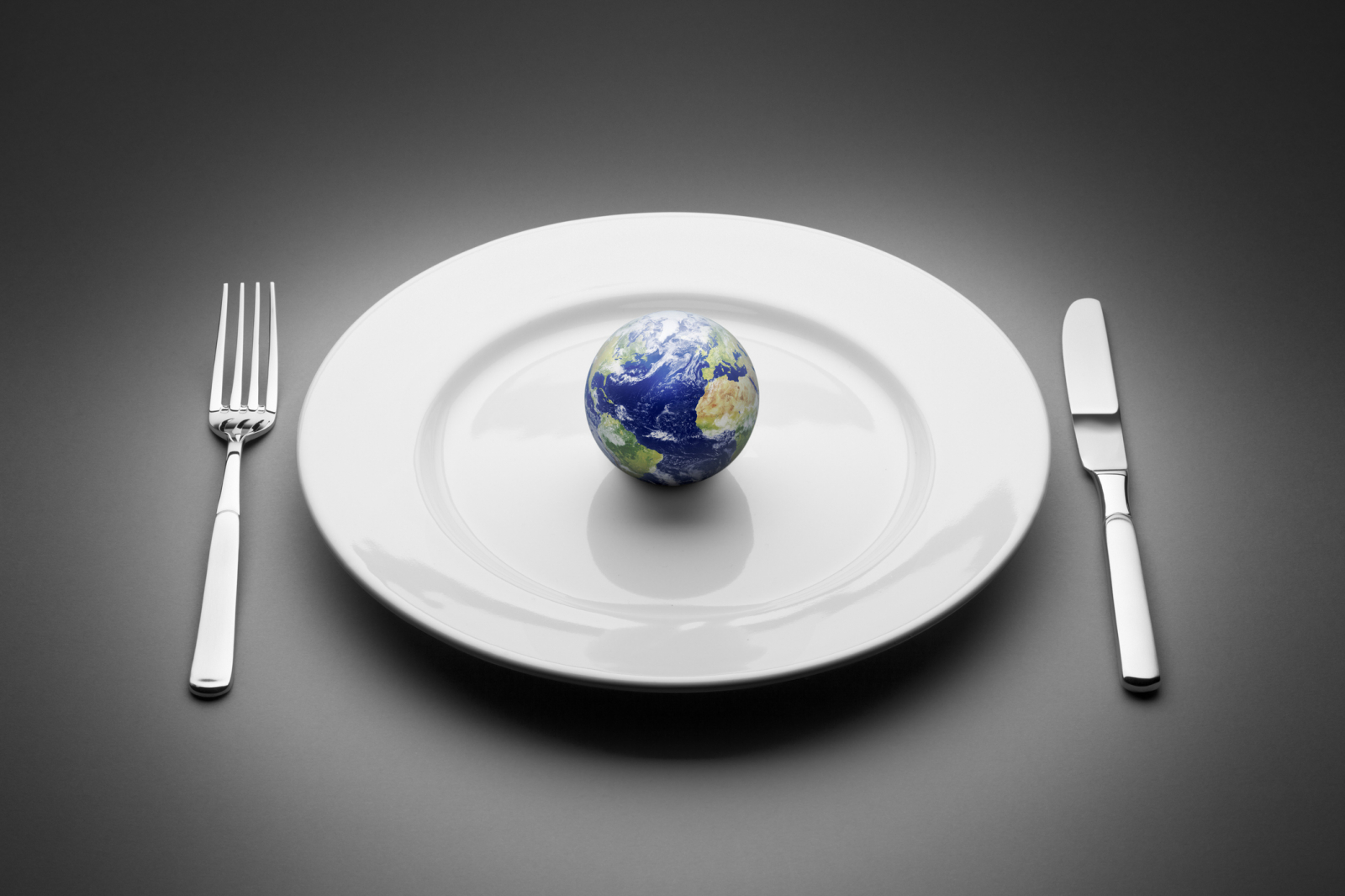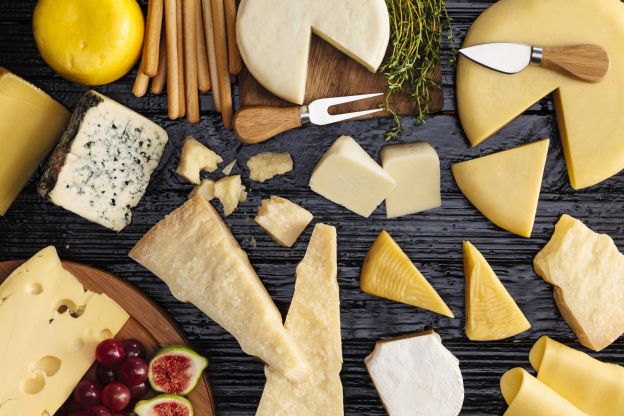© Getty Images / E+ / fcafotodigital
This type of cheese has a higher carbon footprint than chicken...
hard cheese. Bad news for cheese-lovers! Hard cheeses like cheddar and parmesan contribute 14kg of CO2 per 1 kg produced and 13.5kg of CO2 per 1 kg produced, respectively. Chicken has a lower emissions rate of 6.9kg of CO2 per 1 kg. Part of the reason why some cheeses have a higher carbon impact is due to the fact that they require 10 pounds of milk to produce one pound of cheese. On the other hand, softer cheeses with a higher moisture content are made with less milk, require shorter or no aging processes, and therefore use less energy overall.
What can you do? If you can't imagine your life without cheese, stick to softer varieties like cottage cheese, feta, brie, camembert and goat's cheese. Try to reduce your consumption of cheese overall, or substitute vegan options every once in a while. Most importantly, don't buy more than you can eat before it goes bad—more than half a pound of CO2 is emitted for every ounce of cheese that goes uneaten.













 Past Contests
Past Contests
 RECALL: 57 Tons of Frozen Food...
RECALL: 57 Tons of Frozen Food...
 International Team
International Team